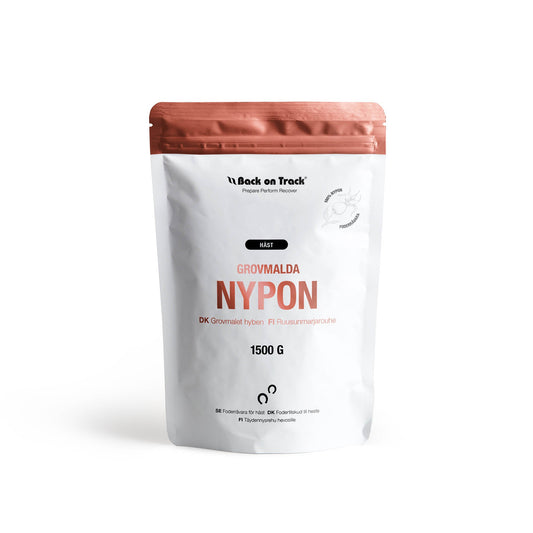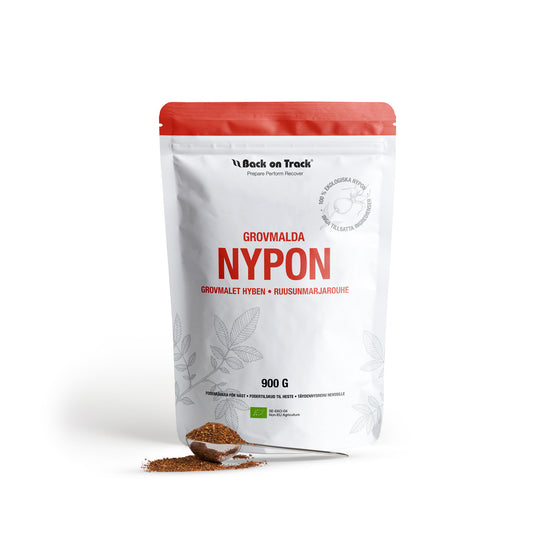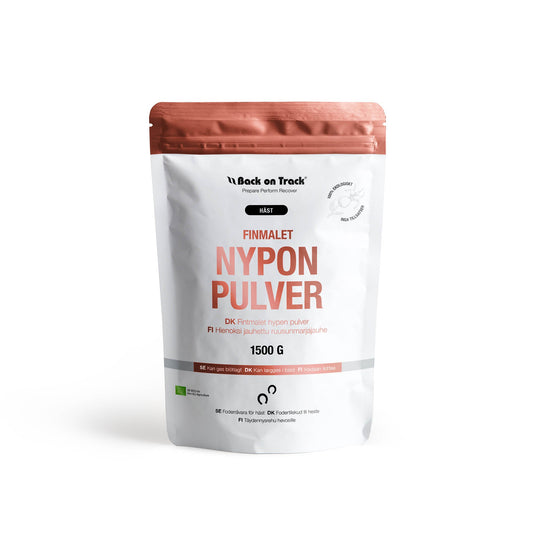Are Rosehips the best food supplement in the world?
So what is so remarkable about rosehips?
Most importantly, they contain a rich cocktail of antioxidants and anti-inflammatory substances in very high concentrations. Together, they help maintain optimal health and support the normal function of the body's tissues.
But they also actively lower the levels of inflammatory substances produced by the body during various stressful conditions. Rosehip supplements are particularly beneficial for joint disorders, most notably for osteoarthritis.
Rosa canina, the Latin name of the wild rose bush - whose rose hips we use in our food supplements - literally means "dog rose". The name has an unclear origin but definitely a long history. It is possible that the ancient Romans called it that because it was believed that the root of the bush could treat dog bites - perhaps even cure rabies (this, however, does not work).
Most cultures have also attributed a number of symbolic, magical and, not least, healing properties to the rose and its glowing red accessory fruits. Some of these properties have been tested and put into practice thoughout history, with the accumulated experience crystallising into a collective, deep-rooted knowledge that has persisted into modern times.
A well-packaged health cure
The content of vitamin C, an essential vitamin as well as a powerful antioxidant, is particularly high in rose hips and it exceeds that of most other vitamin C-rich fruits and berries.
The symptoms of scurvy in humans clearly demonstrate which of the body's processes require vitamin C to function normally. Pronounced vitamin C deficiency is manifested by inflammation of the gums, impaired collagen formation, listlessness, poor wound healing, and susceptibility to infection. Joints ache, skin and connective tissue weaken, bruising is easy to occur and the risk of bleeding increases.
Horses, dogs and most other animals can produce vitamin C themselves and are therefore much less likely to suffer from this deficiency disease. However, it has been demonstrated that horses and dogs may very well need considerably more vitamin C than they can either produce themselves or obtain through food.
Vitamin C is needed everywhere
All kinds of strains, such as physical exertion, infection or stress, consume vitamin C - both in its capacity as an antioxidant and as essential part of the healing, construction and repair of the body's tissues.
When vitamin C is depleted, the levels in the blood will drop, which may be a sign of ongoing infection or high wear and tear on muscles and joints. These conditions seem to apply to humans as well as to both racehorses and racing dogs - the kinds of animals which have been the subject of scientific investigation.
Intensively working animals whose feed is enriched with rose hips show a range of improved results in tests; such as higher performance, greater resilience, faster recovery and even better coat quality.
Anti-inflammatory rosehips against osteoarthritis
Rosehips contain a large amount of active biochemical substances; produced by the plant and concentrated in the red pods. Among them are flavonoids, tannins, anthocyanin, phenolic compounds, fatty oil, organic acids and various inorganic compounds. Together, they create a synergistic effect - a cooperation between substances - which leads to an enhancement of their respective beneficial properties and also makes the them easier to absorb.
The strong anti-inflammatory effect is mainly due to a group of substances called galactolipids.
When a joint is affected by osteoarthritis, the shock-absorbing cartilage between the different parts of the bone slowly begins to break down. The affliction is characterised by inflammation, with accompanying stiffness, swelling and pain in the joint. Both humans and animals can suffer from osteoarthritis. At the tissue level, we are virtually identical: the symptoms are therefore the same and so are the degenerative processes that take place at the molecular level.
When cascades of inflammatory substances are released by the body, they activate the immune system. This in turn causes severe discomfort in the joint, without it at the same time contributing to healing. Instead, it makes any movement a pain to avoid - further exacerbating osteoarthritis.
Rosehip galactolipids have the ability to intervene in the inflammatory process, by mitigating the effect of the endogenous substances that trigger it. Galactolipids also actively help to protect cartilage cells. The results of numerous tests on humans, dogs and horses consistently show reduced discomfort, more flexible joints and greater mobility.
It is this increased mobility - with reduced discomfort - that enables the most effective measure yet against osteoarthritis: physical activity.
Source: Marstrand, Campbell-Tofte; The role of rose hip (Rosa canina L) powder in alleviating arthritis pain and inflammation – part II animal and human studies (Botanics: Targets and Therapy 2016:6).











